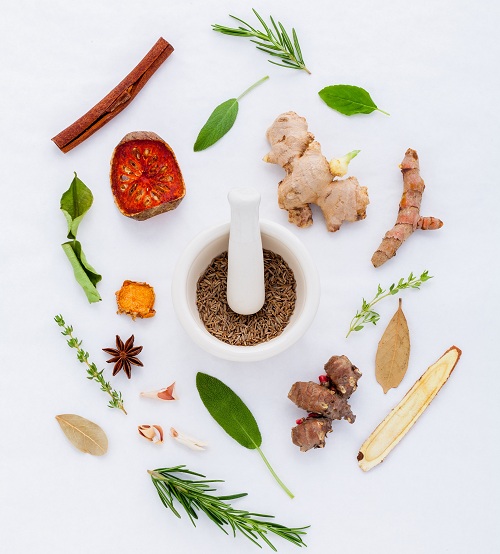
“It’s far more important to know what person has the disease than what disease the person has” (1)
-Hippocrates
The concept of customized medicine dates back to 1500 B.C and is practiced across all disciplines of medicines. The father of medicine, Hippocrates, also advocated this concept. Ayurveda revamped this practice in the 21st century. They integrated it with the epigenetic factor that influences the response of different herbs on the unique medical condition of different individuals. Associating the therapeutic treatment with herbal products, Ayurveda has successfully cured many chronic diseases, which western medicine failed to do. FDA has approved herbal medicine as a food supplement and not as a drug. Companies adhering to the norms of Current Good Manufacturing Practices are authorized to cater herbal medicines to patients.
India, China, and other Asian countries are blessed with bounteous flora of high medicinal value. Ayurveda upsurge in these countries with a jackpot of organic natural herb-based medicines.
Through Randomized Controlled Trial, the clinical efficacy of different herbs is continuously being experimented with in order to make a customized preparation. Many Asian counties have expanded their preservation of indigenous medical knowledge. The global health care market is expediting the effort of making customized herbal medicine. Worldwide, people are accepting it as a substitute to the main course of medicine. (2)
Table of Contents
Indian Ayurveda Proactive on Customized Medicine since Charaka
“Every individual is different from another and hence should be considered as a different entity. As many variations are there in the universe, all are seen in human beings”.
Charaka Samhita is the comprehensive ancient Indian text on Ayurveda. Charaka is the Indian Ayurvedic practitioner of 100 BCE to 200 CE and is known as the Father of Ayurveda. He practiced individualized herbal medicine with a belief that every individual has a unique and different constitution. Based on the Tridosha theory, herbal Indiaor Ayurveda categorizes individuals into various Prakriti (types). Each Prakriti has a variant degree of predisposition to different types of diseases. These phenotypes are considered to classify genotyping.
Traditional Chinese Medicine
Customized herbal medicine is highly practiced by Traditional Chinese Medicine (TCM). They use different herbs containing organic acid, bioactive ingredients, and alkaloid useful in treating specific medical conditions. Often the TCM doctors prescribe different finished products of herbal medicine in different dosages to treat the patient.
Ayurgenomics Influencing Personalized Medicine
Single nucleotide polymorphism (SNP), coined the concept of personalized medicine, is similar to Ayurgenomics. Ayurgenomics is the principle of Ayurveda integrated with genomics. Like Pharma co genetics, this is a potential platform for personalized drug therapy. It analyzes the metabolism rate of different drugs by different Prakriti or types of individuals, which is associated with Drug Metabolizing Enzyme (DME) polymorphism. For e.g, Pitta Prakriti can metabolize faster than Kapha Prakriti. It integrates genomics, proteomics, epigenomics, and metabolomics with human physiology to analyze disease susceptibility.
What Factors are Major Considerations for Customized Herbal Medicine?
Ayurveda promotes the effect of customized medicine based on its three pillars of ahara (diet), vihara (lifestyle), and aushadhi (medications). It aims at reducing morbidity and mortality. Major considerations are:
- Selection of right herbal plants.
- Prescribing the right dose.
- Usage frequency and duration for different individuals.
- Patient’s needs and associated risk factors.
- Minimizing the number of medicines and drug reactions.
- Offering an economic and affordable healthcare system.
Market Demand for Customized Medicine
Herbal nutrition and medicines are adopted by 70-80% of the population across the world. Its market demand has risen to USD 7.5 million on 2020. By 2026 it is expected to rise up to USD 411.2 billion. The successful implication of personalized herbal medicine has given a boom to this market value. (3)
Pros & Cons
Apart from the genomic structure, customized herbal products are given based on body constitution, age, season and geographic variation. The quality and specification of the herbs used is also an important factor.
Since the regulations of these products aren’t as strict as pharmaceuticals, there are many counterfeits and ineffective products present in the market. However, opting for a trusted brand or one that has clinical evidence ensures the quality and efficacy of these products.
The two eminent pillars of Ayurveda are proper diet and a healthy lifestyle. Their medicines also endeavor to treat diseases with natural therapies and organic content.
Safe and Reliable Products from Anzen Exports
Anzen Exports is catering to Active Pharmaceutical Ingredients of different drugs across the world to 611 companies internationally. It has created a name for itself within for quality herbal products market. To know more about our products and availability, please connect with the sales team today.
Disclaimer:
Anzen Exports’ blog posts are based just on our research from cited websites. To be best informed, we advise consulting a doctor about an ingredient or medicine prior to taking it.
Sources:
-
- NCBI
Website – https://www.ncbi.nlm.nih.gov/pmc/articles/PMC3296331/ - World Health Organization
Website – https://www.who.int/bulletin/volumes/86/8/07-042820/en/ - Medical Buyer
- NCBI
